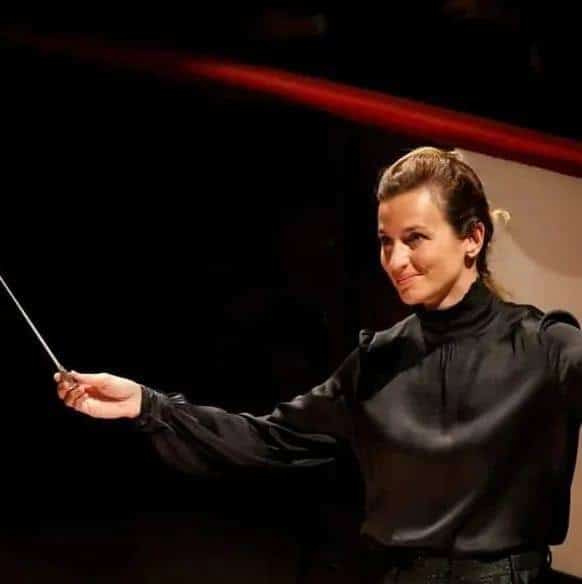Gelb’s proposed lockout: the stage unions respond
mainStatement by Joe Hartnett,
Assistant Dept. Director Stagecraft for I.A.T.S.E.
On
Metropolitan Opera Management’s Threat to Lock out Performers and Backstage Employees
We want the show to go on. Our bargaining teams are very serious about hammering out an agreement with opera management. Several negotiating sessions have been scheduled over the next week. Management and their legal team have drawn red lines through our contracts, but seem to have very little understanding about what items cost or even how the opera functions backstage. This has slowed contract talks.
A lockout would be an opera tragedy, likely resulting in a lost season and a long-term loss of operagoers and subscribers for years to come. A lockout would not only leave theater seats empty in Lincoln Center — it would result in movie theaters going dark around the globe where the Met is simulcast.
Most of all, a lockout would be an indication of management’s failure to manage productions and manage negotiations. We all should be working together to save the Met, not locking out artists and shuttering this opera house.
Joe Hartnett, I.A.T.S.E’s Assistant Department Director of Stagecraft, is coordinating negotiations for the six IA locals at the Metropolitan Opera.






In previous comments I have taken Gelb’s administration to task for what the Unions claim is its lack of control of production costs. I have even cited an example where the Director of the Edinburgh Festival gave the designer of Carmen an ultimatum to redesign within the budget or be fired. With its subsequent redesign, the production is still talked about as one of the most stunning Carmens for decades.
I recently read an illuminating article in the online WSJ about how the Met tackled a similar situation. The production was the recent Prince Igor.
“‘One of the things we try not to do is tell a designer no,’ said John Sellars, the assistant general manager for production. Instead, he said, the company proposes work-arounds—outsourcing some costumes, creating scenery illusions and reallocating money from costumes to sets—to keep costs in line.”
In this case, the initial design was so expensive it did force two redesigns over an 8-month period. Yet it still had major problems.
“By February 2013, Mr. Tcherniakov had a workable design, calling for a great hall instead of the cityscape. But it would cost $5 million, more than $1 million over budget. A period of intense negotiations followed, Messrs. Tcherniakov and Sellars said. Time was running short. The Met had hoped to start building sets months earlier.”
Proof that the Met has an administration that does not like to say “no”. It has a production department that dithers from one expensive design to another – and yet others – over many months. It then permits the design process to continue months after the deadline for construction in its production schedule. Inevitably all that has to drive up costs. But there is more.
“Some nights, when there was no room to store them in the wings, the poppies had to be trucked to off-site storage. They filled eight trucks. The Met didn’t disclose the cost of that storage, saying it wasn’t part of the production budget.”
So these costs were not, as Gelb has often implied, part of the funding from the production’s donor. If all the extra costs of running a specific production in repertoire are not including in the original production budget, where do they end up? In a convenient black hole? Surely this in part explains why costs generally in the Gelb era have risen so quickly.
It also gives credence to the comment made by a chorus member in that same WSJ article –
“‘What we see is pretty much whatever Peter Gelb wants, whatever the director deems necessary, it’s done,’ said Belinda Oswald, a chorus member who sits on the singers’ union negotiating committee.”
http://online.wsj.com/articles/new-yorks-metropolitan-opera-opens-its-budget-curtain-1401416711
It surely also gives credence to the Union’s claim above “of management’s failure to manage productions.”
The Met’s Prince Igor was one of the best opera productions I have ever seen.
Do you feel it was worth the cost? Do you realize that much of the cost stemmed from Gelb attempting to outsource scenic work to other countries, and then, when that did not work out as he had hoped, he made the Met Shop work overtime making poppies. His cost overruns are unprecedented, and frankly few professionals want as much forced overtime as Gelb has come to demand from the already hard working Met Opera Family.
It would have been much cheaper to have choreographed and staged the actual ballet Borodin prescribed.
Do I think Prince Igor was worth the cost? That question would have to be answered within the context of the Met’s long-term strategy, details of which I’m not privy to.
The reason I posted here is that Nick’s post was written from a point of view in which considerations of artistic quality had no place. I wanted to bring that perspective to bear, because the most important thing about Prince Igor for me is that the considerable risks involved in co-producing Igor paid off handsomely in artistic terms.
In my experience, great opera productions are often very expensive – and very difficult – to bring off. It comes with the territory (especially in the case of the Ring). For example, the lighting grid for the overture of Robert Wilson’s Lohengrin had, if memory serves, to be created and imported expensively from Germany. I remember that the rehearsals were fraught with tension at Wilson’s unconventional working methods and the physical demands of the steep rake of the stage. I’m sure many questioned whether that production was worth it in the first season, but eventually people seemed to agree that it is a great production: http://observer.com/2006/05/wilsons-stylized-lohengrin-finds-some-new-admirers/.
There seems to have been similar tension in Igor – noted by the New York Times when Met staff were caught grumbling about the time the director Tcherniakov was taking to choose the right boots for a film sequence (which I found sublimely eloquent: http://kitbakerii.blogspot.com/2014/03/prince-igor.html).
I once worked at a theater in London which was staging a production directed by a Russian director of an older generation, Yuri Lyubimov. With Lyubimov, there were constant issues with overtime. He was used to having six months of rehearsal, and the theater could only afford two. Tension in the ranks ensued. But, as with Tcherniakov, the end result was a cut above.
Tcherniakov is one of the most exciting and accomplished opera directors currently active. I was thrilled when I saw that the Met had hired him, and he did not disappoint.
I can appreciate the difficulties of these negotiations, and understand the arguments on both sides. And I very much wish that somehow an agreement can be reached that works for everyone.
At the same time, I hope that the artistic ambition that we have seen at the Met in recent years isn’t adversely affected if and when that happens. Because it is very important to some of us operagoers that it continues.
On the other hand some of the greatest, indeed history making, productions were done on a shoestring, most notably Wieland Wagner’s revolutionary RING. Simply because Bayreuth just did not have the money for anything else. Necessity being the mother of invention and the handmaiden to a genius.
Peter G. Davis called the Wilson Lohengrin catastrophic and he was right. And it was extremely uncomfortable for the singers and inimical to bringing their own individuality to a role. This is not the place to evaluate Tcherniakov’s other endevours except to observe,IMO, that he hardly did Mozart or Poulenc any favors.
Peter G. Davis reviewed the opening night. I was there, and it was indeed a strangely raw experience. As the NY Observer critic noted, the revivals featured Karita Mattila as Elsa, who was much more comfortable with the production’s approach, and the performance as a whole took on a glow that was aptly described in the Observer review.
The reason I linked to the that review in particular is that it demonstrates that new productions may be off balance at first, and it may take a while to work out the kinks, but sometimes it is the ones that are most difficult that turn out to be great. And it takes a while to figure out whether the initial investment was worthwhile.
From that perspective, the Davis review is irrelevant.
Wieland Wagner’s Ring happened half a century ago. Can you give me a more recent example?
For your consideration, the Metropolitan Opera has yet to come clean on the LePage Ring. Mr. Gelb still tells the public with cost over-rides, the production costs were $19 million plus. The problem is, it is well known throughout the House, that the production costs are over $30 million. The numbers between 19 and 30 are hidden in other cost structures. Remember in 2011 they claimed a “profit” in their tax forms. This is the example of the supreme failure of a General Manager to rein in costs. Prince Igor was chump change next to this. Diana Fortuna, the CFO of the company is a master of hiding costs and until the box office dropped off, she was playing a shell game. I will also tell you, she is the most anti-union executive in the house and has been a Svengali of sorts to the Board.
When it was found the Met stage would have to be reinforced safely to support the 45 ton LePage RING, and the cost would be in six figures, the responsible thing would have been to call a halt and demand a redesign.
I bet that since the stage floor reinforcement is a permanent “improvement” to the Met, the cost wasn’t included in the budget of the Ring cycle. Rather dubious, since one doesn’t expect a lot of other productions to be so heavy.
It’s a hidden cost, pulled from the cost of the Ring, so they can continue to say the price was only $19+ million. They are playing financial whack-a-mole over there. This is part of the reason they have not been forthcoming with union requests about the finances. As Gilbert wrote in the Pinafore, “Things are seldom what they seem, skim milk masquerades as cream…” Schemes like this have been going on for a long time.
Mr. Gilbert as usual hits the nail on the head. “Come over here where the Chancellor [of the Exchequer[ can’t hear us.”
Brian, the cost to redo the hydraulics of the stage was actually slightly over a million dollars. The biggest cost was the fact no one did their due-diligence in measuring the stage and then discovering the weight issue. Mr. LePage had convinced Gelb that his shop could make the sets cheaper then the Metropolitan Opera Shop, who are experts at their craft and have full knowledge of the stage. When his sets arrived they were too large and too heavy and had to be sent back to Canada, with a team of Metropolitan Opera scenery shop employees to insure the set was made correactly the second time. Those scenic shop staff member were poaid overtime, hotels, meals and transportation all on the Metropolitan Operas dime. The abacus was running overtime with the expenses.
Thanks for the intel. I was relying on a NY Times article at the time but there were clearly rocks that had not yet been turned over. That debacle alone should have caused the Board to question the wisdom of their appointment. Quite aside from the production itself which has proved to be a troublesome white elephant, IMO. ( In Gelb’s place, I would have adapted Stephen Wadsworth’s Seattle RING for the Met. Both beautiful and practical )
I fully agree with SaveThe Met. That the need for the stage to be strengthened at huge cost is something that should have been obvious to the Met’s Production Managers long before they signed off on the Ring designs. If they then entrusted an out-of-House construction company to build the set, they were entirely negligent in not ensuring that the completed set was built within the specific weight parameters they should have included in the contract. That alone would be grounds to sue the construction company for all the Met’s additional costs. Did that happen? Unlikely.
A savvy manager of any opera/performing arts company has massive control over the budgeting and budget control processes, if only because most of the Board will have little clue of the detail and thus look only at sub-headings and totals. In drawing up a budget, it’s perfectly possible to inflate budgets for a large number of relatively insignificant items of expenditure knowing that these ‘holes’ can later be filled up with embarrassing cost overruns from elsewhere in the budget. Not even external auditors are likely to question that little game provided the total budget has been given Board approval. Was that done with the Ring? I do not know.